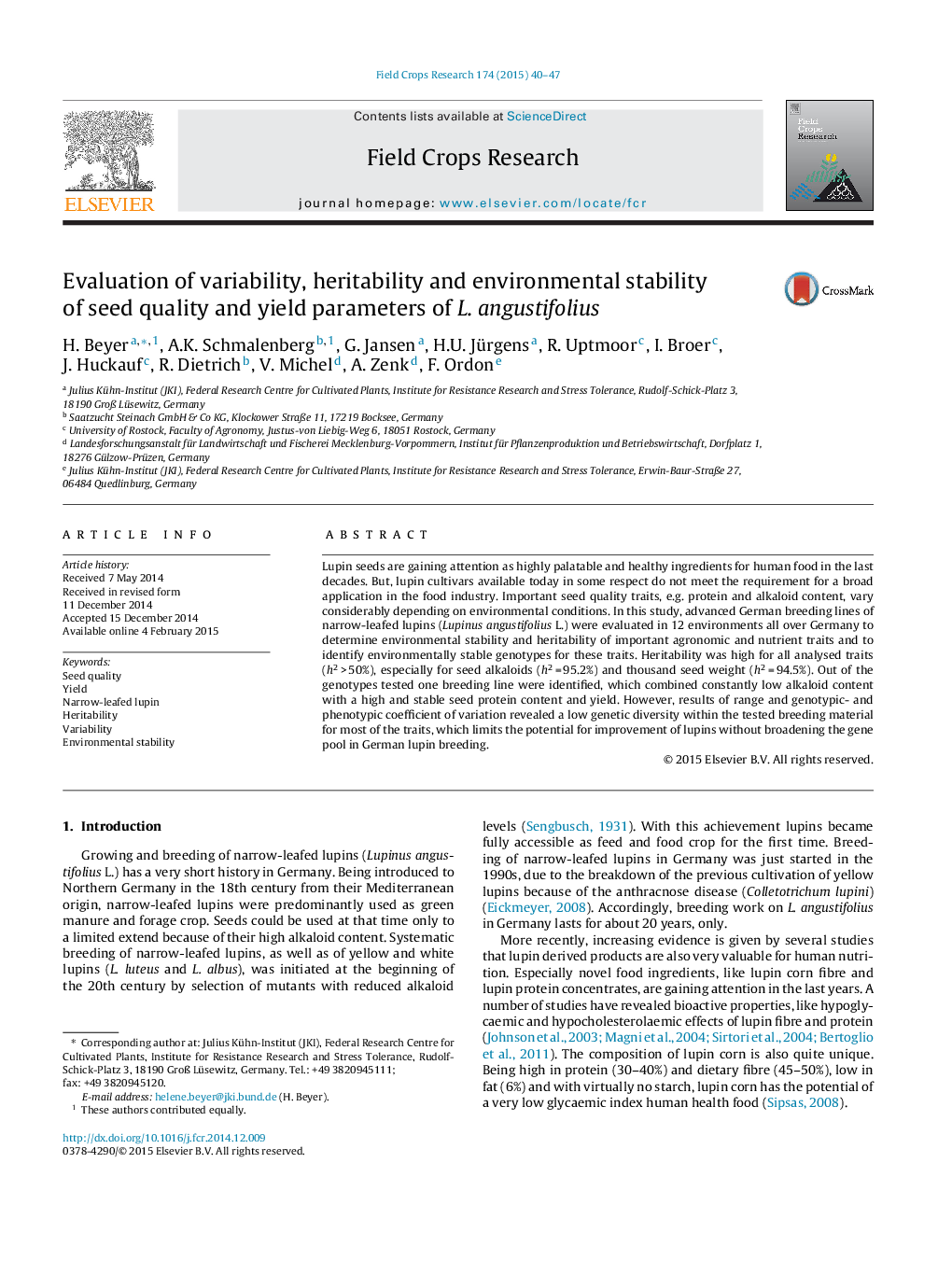| Article ID | Journal | Published Year | Pages | File Type |
|---|---|---|---|---|
| 4509920 | Field Crops Research | 2015 | 8 Pages |
•We reported about important seed quality and yield traits of modern German L. angustifolius breeding lines and cultivars.•We evaluated the respective traits concerning variability, heritability and stability based on the German breeding material.•With this work we contribute to knowledge about breeding possibilities and chances to make narrow leafed lupins more popular as a food crop.•We identified genotypes with promising properties for an application in the food industry.
Lupin seeds are gaining attention as highly palatable and healthy ingredients for human food in the last decades. But, lupin cultivars available today in some respect do not meet the requirement for a broad application in the food industry. Important seed quality traits, e.g. protein and alkaloid content, vary considerably depending on environmental conditions. In this study, advanced German breeding lines of narrow-leafed lupins (Lupinus angustifolius L.) were evaluated in 12 environments all over Germany to determine environmental stability and heritability of important agronomic and nutrient traits and to identify environmentally stable genotypes for these traits. Heritability was high for all analysed traits (h2 > 50%), especially for seed alkaloids (h2 = 95.2%) and thousand seed weight (h2 = 94.5%). Out of the genotypes tested one breeding line were identified, which combined constantly low alkaloid content with a high and stable seed protein content and yield. However, results of range and genotypic- and phenotypic coefficient of variation revealed a low genetic diversity within the tested breeding material for most of the traits, which limits the potential for improvement of lupins without broadening the gene pool in German lupin breeding.
